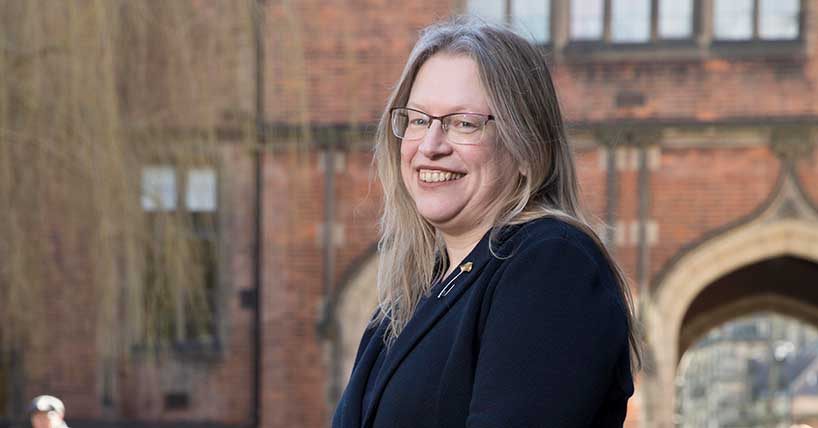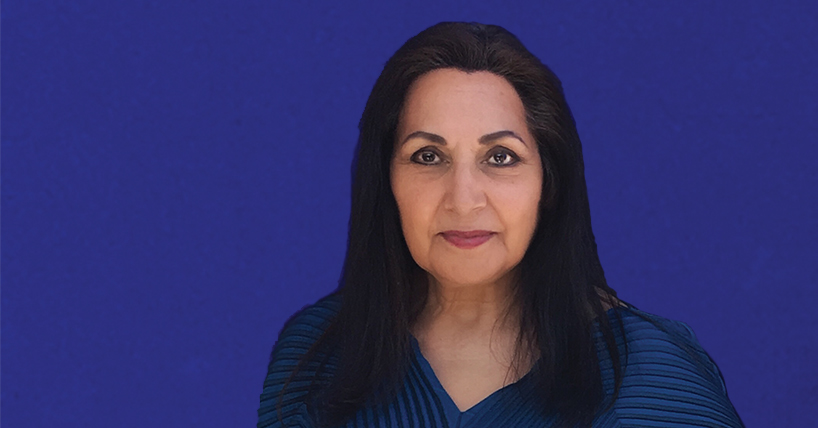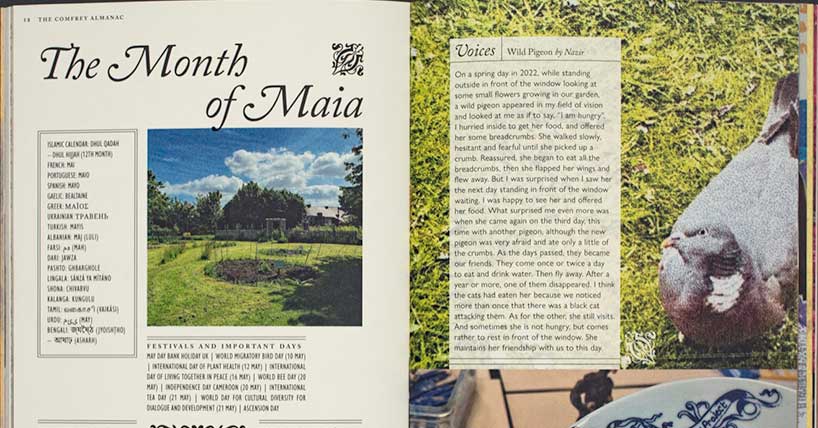Black Lives Matter message
Black Lives Matter messages
Published on: 11 June 2020
A message from our Deputy Vice Chancellor Professor Julie Sanders to all our students.
To our students
I wanted to write to follow up on the institutional statement we published last week in the wake of George Floyd’s brutal death and the global protests that have been taking place to make clear that at Newcastle University Black Lives Matter. I am sorry if this more substantive response is felt to be a little late in the day for many of our students who are feeling the impact of this time acutely but it was really important that we took the time to give as full an update as possible. I know this has been a challenging few weeks and that many of us are hurting, angry, anxious or just exhausted, but I hope this is a moment when the best of Newcastle University can come to the fore. Many of you have taken the time to write to me or others in the institution to ask about the detail of the work of the Race Equality Charter Self Assessment Team (REC SAT) mentioned in the statement and for a clearer outline of the work the university is committing to do over the coming months. And many of you have offered direct help, for which much thanks.
As our statement indicated, and as I tried to make clear in my accompanying video, we are not sticking our heads in the sands at Newcastle University. We know and recognise that there are issues, structural and behavioural, to deal with here. We must and will call out inappropriate behaviours consistently and with clarity, and as an organisation we will strive to drive positive change at pace to bring far more Black, Asian and Minority Ethnic (BAME) colleagues into our teams, onto our programmes, and into positions of governance and leadership.
I am also aware that for many the use of the term “BAME” in itself in our communications and messages is an issue but we are using it not as a disrespectful or homogenising shorthand but with care and because it is the agreed acronym of the Race Equality Charter processes and because it brings into visibility the important work of our BAME network which includes academic and professional services colleagues, students, and alumni. The REC SAT work is helping us to look at the very different lived experiences for students and colleagues who identify as black as well as other BAME groups.
We are a University that has taken pride in putting social justice at the heart of its mission, vision and strategy and that has chosen to pay attention to a long history of social justice campaigning here in the North East. Neither the statue of Dr Martin Luther King Jr that stands outside the Kings Hall, and which openly speaks out against poverty, war and racism just as MLK did in his remarkable 1967 honorary degree acceptance speech, nor the Frederick Douglass Centre are tokenistic gestures. They are very public statements of genuine intent and commitment and learning from this important history in order to make a better future for us all. And celebrating these figures on our campus is not to ignore or silence the difficult history that also exists all around us, the traces of which are visible in places like Blackett Street, named for John Erasmus Blackett who was associated with the trading of slave-produced Jamaican rum, and in the material remains of the manufacture of shackles in this region that have been the focus of recent exhibitions on our past.
I personally stood on the stage last November with Frederick Douglass’s direct descendent Kenneth Morris Jr and pledged to him that we would be a university that would uphold our values and live up to having the honour of the Douglass name and example in our midst and I continue to hold myself to account for that every day.
Earlier this week I presented an update on the Race Equality Charter (REC) work to our University Council. As I stressed there, the confirmed action plan for the REC work will be agreed by the whole group and informed by our completed colleague and student surveys over the next few months so that it is in place for the new academic year. As a result of the detailed work we have been doing and the learning we have taken from surveys and other task and finish projects and workshops, we have a good sense of the key themes and issues that we will focus on.
These are:
- Diversifying student recruitment and ensuring support for all students to succeed and progress both during and after university.
- Addressing the awarding gap (this work is informed by our Office for Students Access and Participation Plan but as importantly by our wider Inclusive Newcastle project in which students are helping to shape the future).
- Decolonizing the curriculum - looking at what and how we teach, and diversifying the classroom and the wider student experience.
- Colleague recruitment processes, approaches and outcomes (this is in fact the planned focus of our July REC meeting).
- Career progression and structures of support.
- Ensuring we open up the world of academia to as diverse a group of colleagues as possible – focussing initially on targeted scholarships and bursaries for students and evaluating their impact where we have introduced them (as in the case of our recent Sanctuary Scholarships.
Working in tandem with our Changing the Culture group, we are looking at Hate Crime reporting and support and the development and training of Hate Crime champions across the organisation and we are also in discussions with groups such as Show the Red Card to Racism on some personalised learning and development. In addition, our People Services and Organisational Development team are rolling out active bystander training across the organisation which will help us all develop the skills and confidence to make positive interventions in difficult situations.
At the same time, lots of work is going on in individual schools and teams and we welcome and invite more sharing of this across the organisation. History, Classics and Archaeology have been leading on decolonizing the curriculum, incorporating vital listening from our student representatives in this work. I have also personally benefitted from groups such as in my own School of English Literature, Language and Linguistics and the Law Library sharing resources and reading on issues of white privilege, anti-racism and the history of protest and activism. I really hope that we will all take time to continue to educate ourselves on these issues and on how we can make positive change. The Medical Faculty is opening up an active dialogue, especially prescient in the COVID-19 context, about the importance of critical race studies informing the teaching and content of our medical training and ensuring that the Newcastle University experience is one that embraces many different communities, cultures and life experiences.
We are far from perfect, then, but we are committed to this work. I am inspired by the words of Ijeoma Oluo: “Do not fear the opportunity to do better.”
When the detailed action plan and the specific targets and reporting milestones are agreed for the REC work in the Autumn I will share these with you and hopefully we can work and act together to ensure that we meet all of our aims and objectives.
More immediately, Professor Keith Magee a Visiting Professor of Social Justice in our History, Classics and Archaeology School is, with our outgoing and incoming Welfare and Equality sabbatical officers, Sara Elkhawad and Nadia Ahmed, putting together an online discussion forum for students and academic and professional services colleagues to take place on 22 June (sign up details to follow soon). This will include some preparatory reading on Black Lives Matter and histories of activism but also on whiteness which is crucial for those of us who wish to be informed allies in this work.
I hope to be able to talk more to you as this work progresses and, as with our climate change work which is very much a cooperative effort between academics, professional services colleagues, students, alumni, and external partners. I will try to ensure that we take a similar approach with this social justice work, ensuring that the student voice is prevalent and that we work together in all things. I will communicate regularly and keep you updated on key initiatives and actions from the REC SAT along with our NUSU sabbatical officers and I hope you will do the same to keep me informed of your activities, thoughts and issues.
I am really happy to receive comments, ideas and challenges from students on all of this. Please write to me at julie.sanders@ncl.ac.uk or if you would like me to come and listen to your ideas or issues I am happy to try and make time to do that. Thanks for taking the time to read a very long email when you must be feeling pretty overwhelmed just now with news and information. Please be assured that I am listening and that we are doing our best to bring about important changes.
All I ask in response to recent events is that we come together as a community at this time and, to adapt the words of Langston Hughes, strive to “make a world that is good and beautiful and kind” together.
Let’s be the change we want to see in the world.
Yours,
Julie
Professor Julie Sanders
Deputy Vice-Chancellor
Equality, Diversity & Inclusion lead on behalf of Executive Board

A message from our Chancellor Imtiaz Dharker
One of the reasons I accepted the Chancellorship was the certainty that Black Lives do Matter at Newcastle University and that student and staff aspirations are recognised and fostered regardless of race.
There is undoubtedly more to be done, but I am reassured that measures are already under way to ensure the University is able to safeguard equality and diversity and achieve change.
I am proud that the statue outside Kings Hall is of Dr Martin Luther King Junior and hope we can all do everything possible to honour his dreams.
Chancellor of Newcastle University




